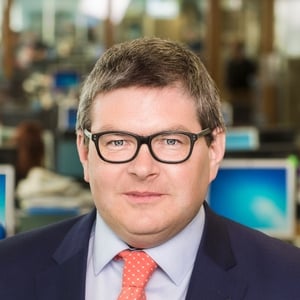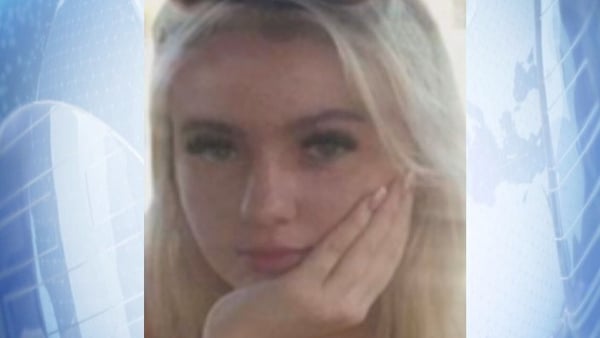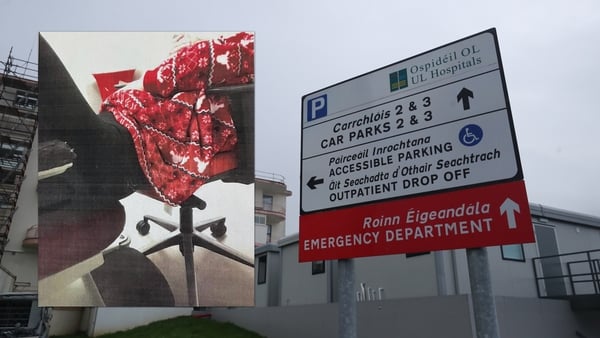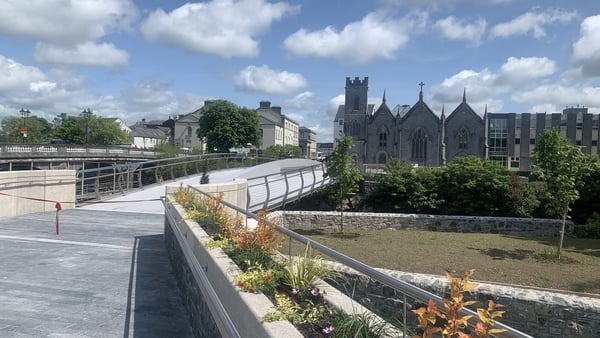Health Service Executive CEO Paul Reid has said there are "very significant challenges" to recruit more staff into disability services around the country.
He said that while 1,350 staff had been hired since the start of 2020, there were still very significant gaps that needed to be filled.
He said that efforts were ongoing, on a national and international level, to attract new recruits and the HSE was focused on trying to address the staffing shortfall.
Earlier, Mr Reid said a range of actions are being taken in recruitment, particularly in disability areas, where there is cause for concern by the HSE and the many providers of services.
Out of just over 2,000 roles, 732 posts for professionals providing services for children with disabilities, many of them in the HSE, are vacant.
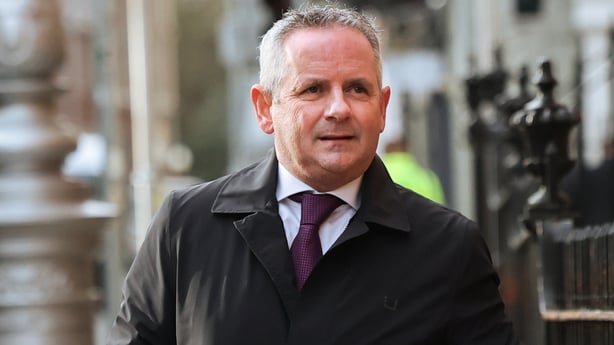
Speaking on RTÉ's This Week, Mr Reid said: "We're looking at a range of different initiatives to try and recruit further into this area, and they will be skills around occupational therapists, physiotherapists, speech and language therapists.
"We're looking locally, internationally, we're looking at the expansion of some further foreign graduates, we're offering posts to graduates in health and care professions to come at a certain grade and then upskill and register later, we're looking at sign-on bonuses.
"So we're looking at a range of actions to increase our capacity to recruit in this area.
"It is a concern for us. Ultimately we have a very significant recruitment campaign. We've recruited an extra 15,000 staff in the HSE over the past two years. But this is an area of concern to us..."
Mr Reid said the HSE was now making progress right across the country.
"We've 91 community disability teams and we are recruiting into those ... I've met many therapists who've come back from the UK ... and indeed from Australia because they are seeing us investing extra into our community services, so, we will make progress - it's a very challenging environment to recruit", he said.
We need your consent to load this rte-player contentWe use rte-player to manage extra content that can set cookies on your device and collect data about your activity. Please review their details and accept them to load the content.Manage Preferences
Information revealed in a parliamentary reply given to Sinn Féin's health spokesman David Cullinane showed there are 732 vacant posts out of 2,082 roles for professionals providing a range of services for children with disabilities.
According to the HSE the vacant posts equate to 480,000 hours not being provided to children who are on waiting lists for services.
The unfilled roles are across the HSE and 18 organisations funded by the State.
There are 52,000 children waiting for initial assessment and therapy.
The biggest waiting list is for speech and language therapy at over 30,000 children.
Nearly 8,000 are awaiting physiotherapy and over 13,000 are waiting for occupational therapy.
And there are 9,500 children on waiting lists for further speech and language therapy appointments.
Mr Cullinane said the waiting lists are heartbreaking for families and called for more training places to increase the pool of graduates.
Delays stopping Paddy 'from reaching full potential'
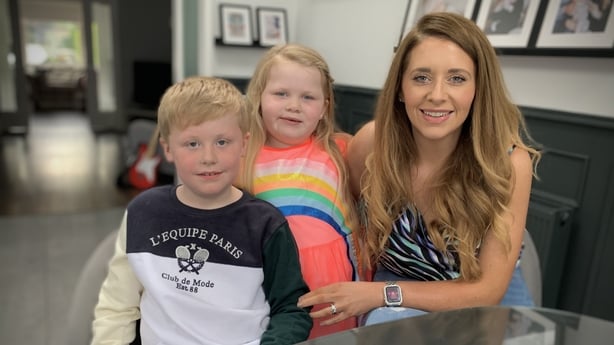
The long waiting lists brought about by the vacant posts is creating considerable difficulties for families affected, including Kerina Cullen-Tuite and her son Paddy.
Paddy, who will be eight later this year, was diagnosed with autism in 2017.
However, since then Kerina said he has received just 18 hours of therapy, which includes 12 hours of speech and language and six hours of occupational therapy.
In addition, she said Paddy's report said he should have a psychological assessment but that he is still on a waiting list for that.
"It was also suggested he should have an educational assessment going into primary school - he still hasn't received that."
Kerina says the delays are "stopping us from helping Paddy reach his full potential and make progress".
On the possibility of paying for private therapy, she said that is not an option at the moment as there is so much demand.
"We were lucky when Paddy was first diagnosed that we were able to access a wide range of different therapies, but you can't even get anyone privately now - it's crazy."
We need your consent to load this rte-player contentWe use rte-player to manage extra content that can set cookies on your device and collect data about your activity. Please review their details and accept them to load the content.Manage Preferences
Vacancies not a surprise, says Minister of State
Meanwhile, Minister of State for Mental Health and Older People Mary Butler said the unfilled positions in children's disability services is "very worrying", but it does not come as a surprise.
While acknowledging how hard it is for parents to access these supports for their children, she said they are facing difficulties with recruitment across all sectors of the HSE.
Speaking on RTÉ's The Week in Politics, she said: "I am not surprised as we are all inundated with various challenges in relation to therapies for children with special needs."
Minister Butler also addressed the issue of four schools being identified that the Department of Education claims are not engaging on providing spaces for children with special needs.
She said schools "can't pick and choose" what children they are going to take.
She said 106 children currently do not have a school place and that is "hugely worrying".
She said her colleague, Minister Josepha Madigan, is trying to use every avenue open to her to make sure children are placed in a school in "a timely manner."
Sinn Féin's Claire Kerrane described it as "shameful" that many children with special needs still do not have school places for September.
She described further "shamefulness" as she accused the Department of Education of "pitting" parents and schools against each other.
She said she would like to see a list published of schools that have repeatedly sought assistance for additional resources.
She said while it is one thing to get a child a place in school it is also important that the necessary resources are provided.
Additional reporting: David Murphy, Aengus Cox

